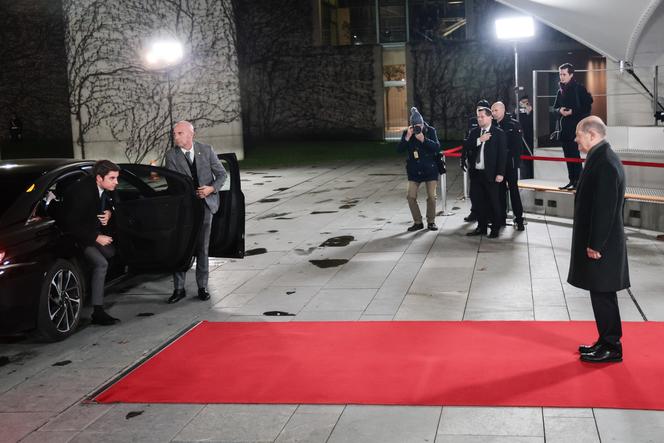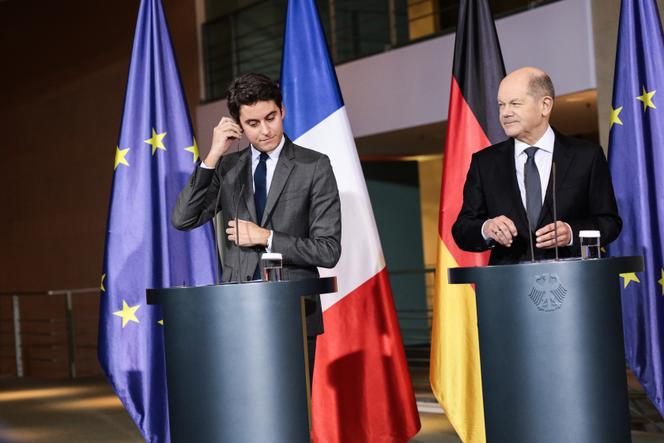


He secluded himself, surrounded by a cluster of advisors. Gabriel Attal had just addressed Berlin's French community in a salon at the French Embassy near the Brandenburg Gate. Before heading to the Chancellery, where Olaf Scholz was waiting for him, Attal was briefed on the military ceremony. His aide-de-camp showed him a map of the Bundeskanzleramt esplanade, as well as a video detailing this rite of passage for every foreign leader welcomed to the German capital. The goal being to avoid any mistakes like President François Hollande's in 2012, when Angela Merkel ostensibly put him on the right track, prompting a few mockeries.
"Ready?" asked a diplomat, in a light tone, after the briefing. "Yes, well, it's my first! And so if I go right instead of left, it won't be too bad either!" replied Attal in a dry, tense tone. A "control freak," the youngest prime minister of the Fifth Republic hates improvisations and missteps. When the chancellor finally welcomed him at nightfall, Attal said: "I warn you, these are my first military honors." Scholz laughed: "Everything will go well, you'll see." At the end of the ceremony, the prime minister told his staff, relieved: "I was stressed, but I did everything right!"

Less than a month after his appointment, Attal chose Berlin for his first foreign visit, on Monday, February 5. This was an unusual move. His predecessors were in no hurry. Elisabeth Borne came six months after her appointment, Edouard Philippe waited four months and Manuel Valls and Jean-Marc Ayrault before them six months. As for Jean Castex, he didn't make the trip. "It wasn't always my predecessors' choice to go to Germany, and when they did, it took a while," Attal told the 250 or so guests at the embassy. It was a presidential gesture, given that in France, the president, when elected, traditionally chooses Berlin as their first international destination, in order to demonstrate the value they place on the French-German relationship.
That relationship has been put to the test in recent months. At his joint press conference with Scholz, Attal made no secret of it. "We don't agree on everything, it's true," he noted, as France and Germany have recently clashed on a number of issues: energy, defense, aid to Ukraine and the free-trade agreement between the European Union and the Mercosur countries, favored by the Germans, while the French are hostile to it. "My conviction is that what brings us together is much stronger than what separates us," Attal added. At the embassy, he was even clearer: "We must succeed in jolting Europe. And this European jolt will be a French-German jolt."
You have 75% of this article left to read. The rest is for subscribers only.
